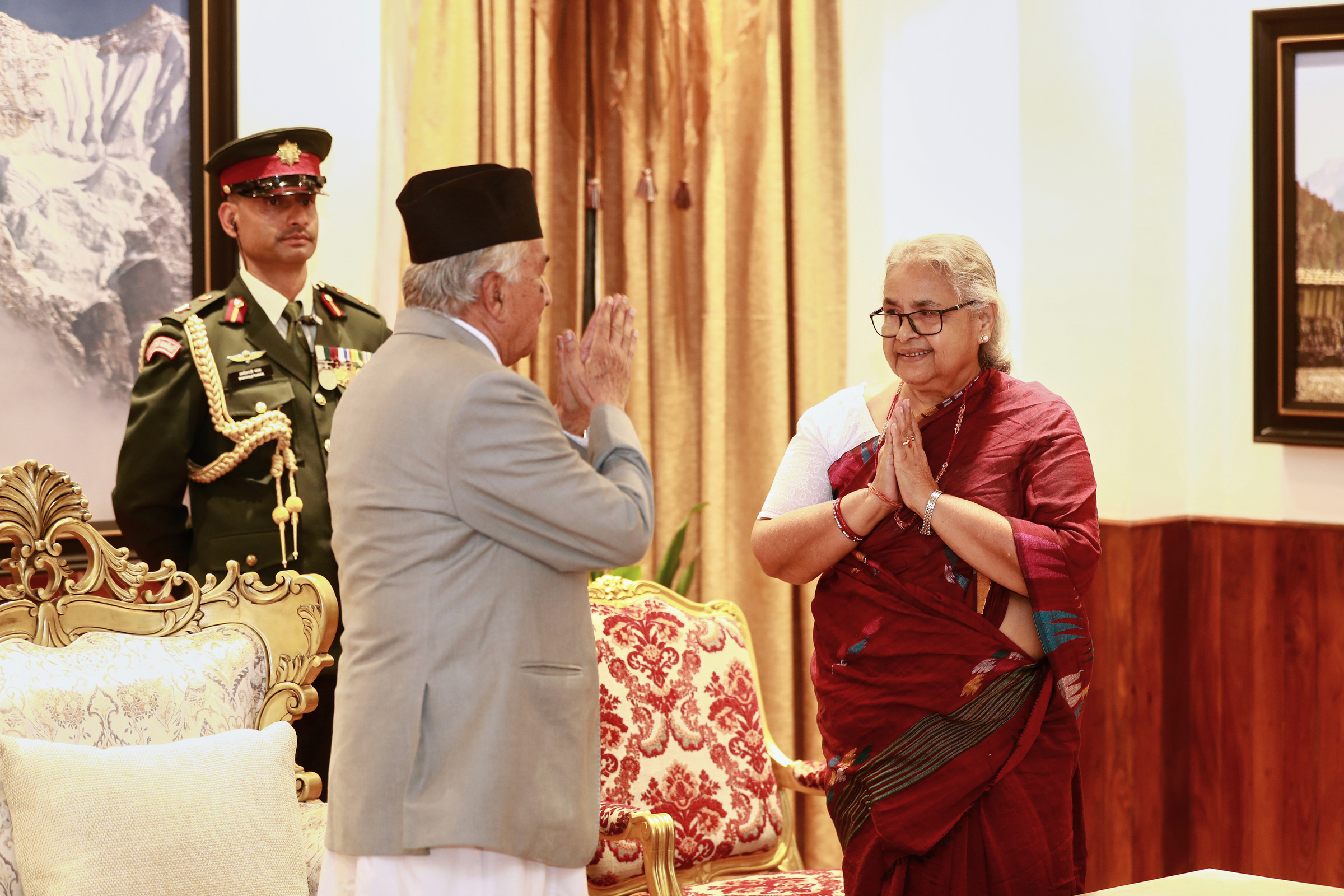Nepal's president's office announced the dissolution of parliament at 11 PM on 12/9, adding that President Ram Chandra Paudel set parliamentary elections for 5/3/2026.
The move came shortly after former chief justice Sushila Karki was sworn in as Nepal's interim prime minister. Karki proposed dissolving parliament, and Paudel immediately agreed. This was also a demand from protesters earlier in the week.
 |
Sushila Karki (right) greets President Poudel after the swearing-in ceremony in Kathmandu on 12/9. Photo: AP
Large-scale protests erupted in Nepal on 8/9, as tens of thousands of people, mostly Gen Z, took to the streets of Kathmandu to protest the government blocking social media. The demonstrations evolved into protests against corruption.
The situation deteriorated as protesters clashed with security forces, and police used live ammunition against the crowds. Prime Minister Sharma Oli and several cabinet members resigned on 9/9, leading to a state of anarchy that required military intervention. Protesters then nominated Karki as interim prime minister and called for the dissolution of parliament and constitutional amendments.
Nepalese police reported on 12/9 that the unrest had resulted in 51 deaths, including 21 protesters, 9 prisoners, three police officers, and 18 others. More than 1,300 people were injured.
Nhu Tam (AFP, NDTV)












